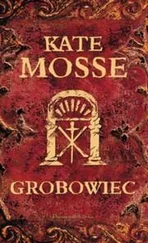Guilhem gulped for air. He just managed to nod, scraping his cheek against the rough surface of the wall, when Pelletier gave a last, vicious shove, crunching his ribs against the hard stone, and released him.
Rather than go back into the Great Hall, Pelletier stormed out in the opposite direction into the courtyard.
The moment he’d gone, Guilhem doubled over, coughing and rubbing his throat, taking in great gulps of air like a drowning man. He massaged his neck and wiped the smear of blood from his lip.
Slowly, his breathing returned to normal. Guilhem straightened his clothes. Already his head was filled with the ways in which he would bring Pelletier to account for humiliating him like this. Twice in the space of one day. The insult was too great to be ignored.
Suddenly aware of the steady murmur of voices spilling out of the Great Hall, Guilhem realized he should join his comrades before Pelletier came back and found him still standing outside.
The guard made no attempt to hide his amusement.
“What are you staring at?” Guilhem demanded. “You keep your tongue in your head, do you hear, or it will be the worse for you.”
It wasn’t an idle threat. The guard immediately dropped his eyes and stood aside to let Guilhem enter.
“That’s more like it.”
With Pelletier’s threats still ringing in his ears, Guilhem slipped into the chamber as unobtrusively as he could. Only his high color and the rapid beating of his heart betrayed anything of what had taken place.
Viscount Raymond-Roger Trencavel stood on a platform at the far end of the Great Hall. He noticed Guilhem du Mas slipping in late at the back, but it was Pelletier he was waiting for.
Trencavel was dressed for diplomacy, not war. His red long-sleeved tunic, with gold trim around the neck and cuffs, reached to his knees. His blue cloak was held at the neck by a large, round gold buckle that caught the light from the sun shining in through the high windows that ran along the top of the southern wall of the chamber. Above his head was a huge shield bearing the Trencavel coat of arms, with two heavy metal pikes forming a diagonal cross behind it. The same ensign appeared on banners, ceremonial clothes and armor. It hung above the portcullis of the moated gateway of the Porte Narbonnaise, both to welcome friends and to remind them of the historic bond between the Trencavel dynasty and its subjects. To the left of the shield was a tapestry of a dancing unicorn, which had hung on the same wall for generations.
On the far side of the platform, set deep into the wall, was a small door that led to the viscount’s private living quarters in the Tour Pinte, the watchtower and oldest part of the Chateau Comtal. The door was shielded by long blue curtains, also embroidered with the three strips of ermine that made up the Trencavel arms. They gave some protection from the bitter draughts that whistled through the Great Hall in winter. Today they were held back with a single, heavy gold twist.
Raymond-Roger Trencavel had spent his early childhood in these rooms, then returned to live within these ancient walls with his wife, Agnes de Montpellier, and his two-year-old son and heir. He knelt in the same tiny chapel as his parents had knelt; he slept in their oak bed, in which he had been born. On summer days like these, he looked out of the same arched windows at dusk and watched the setting sun paint the sky red over the Pays d’Oc.
From a distance, Trencavel appeared calm and untroubled, with his brown hair resting lightly on his shoulders and his hands clasped behind his back. But his face was anxious and his eyes kept darting to the main door.
Pelletier was sweating heavily. His clothes were stiff and uncomfortable beneath his arms, clinging to the small of his back. He felt old and unequal to the task ahead of him.
He’d hoped the fresh air would clear his head. It hadn’t. He was still angry with himself for losing his temper and allowing his animosity toward his son-in-law to deflect him from the task in hand. He couldn’t allow himself the luxury of thinking about it now. He would deal with du Mas later if need be. Now, his place was at the viscount’s side.
Simeon was not far from his mind either. Pelletier could still feel the cauterizing fear that had gripped his heart as he rolled the body over in the water. And the relief when the bloated face of a stranger stared, dead-eyed, up at him.
The heat inside the Great Hall was overwhelming. More than a hundred men, of church and state, were packed into the hot, airless chamber, which reeked of sweat, anxiety and wine. There was a steady drizzle of restless and uneasy conversation.
The servants standing closest to the door bowed as Pelletier appeared and rushed to bring him wine. Immediately opposite, across the chamber, was a row of high-backed chairs of dark, polished wood, similar to the choir stalls of the cathedral church of Sant-Nasari. In them sat the nobility of the Midi, the seigneurs of Mirepoix and Fanjeaux, Coursan and Termenes, Albi and Mazamet. Each had been invited to Carcassonne to celebrate the feast day of Sant-Nasari at the end of July, yet now found himself instead summoned to Council. Pelletier could see the tension in their faces.
He picked his way through the groups of men, the consuls of Carcassonne and leading citizens from the market suburbs of Sant-Vicens and Sant-Miquel, his experienced gaze taking in the room without appearing to do so. Churchmen and a few monks were skulking in the shadows along the northern wall, their faces half-hidden by their robes and their hands folded out of sight inside the capacious sleeves of their black habits.
The chevaliers of Carcassonne, Guilhem du Mas now among them, were standing in front of the huge stone fireplace that stretched from floor to ceiling on the opposite side of the chamber. The escrivan Jehan Congost, Trencavel’s scribe-and the husband of Pelletier’s eldest daughter Oriane-was sitting at his high desk at the front of the hall.
Pelletier came to a halt in front of the dais and bowed. A look of relief swept across Viscount Trencavel’s face.
“Forgive me, Messire .”
“No matter, Bertrand,” he said, gesturing that Pelletier should join him. “You’re here now.”
They exchanged a few words, their heads close together so that nobody could overhear them. Then, on Trencavel’s word, Pelletier stepped forward.
“My lords,” he bellowed. “My lords, pray silence for your seigneur, Raymond-Roger Trencavel, Viscount of Carcassona, Besiers and Albi.”
Trencavel stepped into the light, his hands spread wide in a gesture of greeting. The hall fell silent. Nobody moved. Nobody spoke.
“Benvenguda, my lords, loyal friends,” he said. Welcome. His voice was as true as a bell and as steady, giving the lie to his youth. “Benvenguda a Carcassona. Thank you for your patience and for your presence. I am grateful to you all.”
Pelletier cast his eye over the sea of faces, trying to gauge the mood of the crowd. He could see curiosity, excitement, self-interest and trepidation, and understood each emotion. Until they knew why they had been summoned and, more significantly, what Trencavel wanted of them, none of them knew how to behave.
“It is my fervent hope,” Trencavel continued, “that the tournament and feast will go ahead at the end of this month as planned. However, today we have received information that is so serious and with such far-reaching consequences, that I believe it right to share it with you. For it affects us all.
“For the benefit of those not present at our last Council, let me remind you all of how the situation stands. Frustrated by the failure of his legates and preachers to convert the free people of this land to show obedience to the Church of Rome, at Easter one year ago, His Holiness Pope Innocent III preached a Crusade to rid Christendom of what he called the ”cancer of heresy‘ spreading unchecked through the lands of the Pays d’Oc.
Читать дальше












